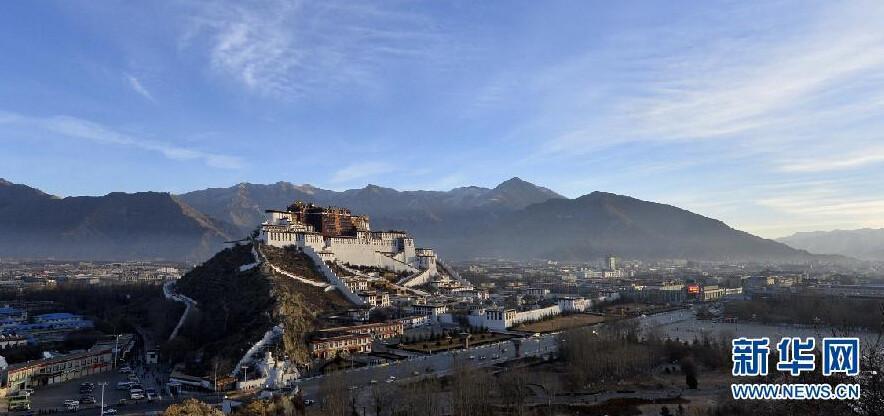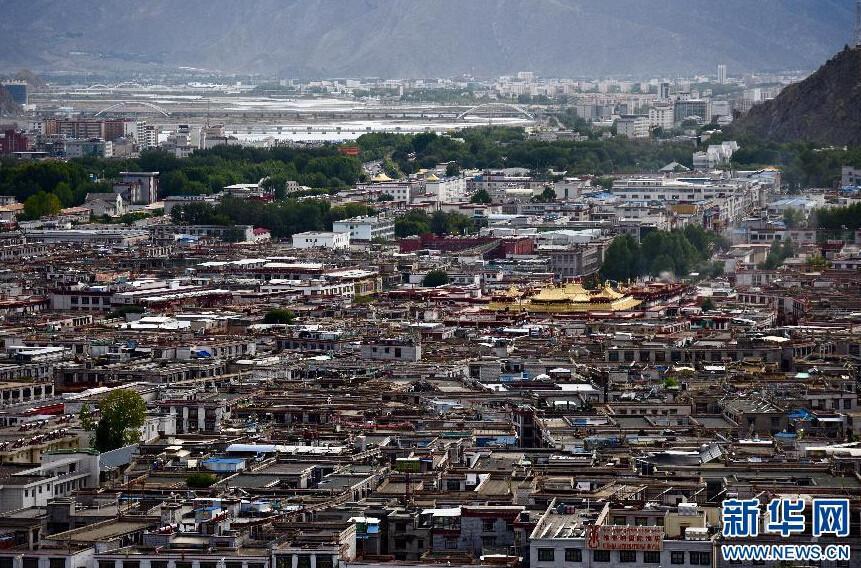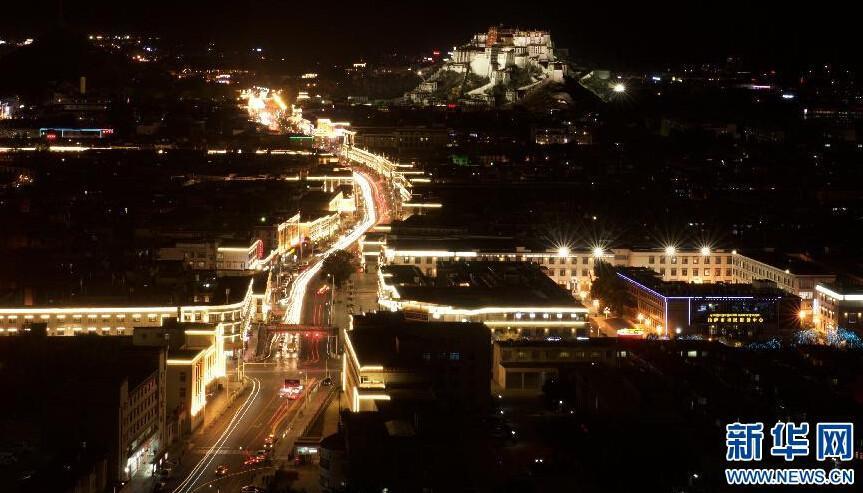By Zhu Shan Source:China Tibet News 2015-09-21

Photo shows the beautiful scenery of Lhasa, the capital of southwest China's Tibet Autonomous Region.[Xinhhua/ Phurbu Tashi]
With an altitude of 3,650 meters, Lhasa, the capital of southwest China’s Tibet Autonomous Region, is the political, economic, cultural and transport center of the region. Enjoying a history of more than 1,300 years, Lhasa is regarded as one of 24 historical and cultural cities in China. The Potala Palace and the Jokhang Temple are on the list of world cultural heritage by UNESCO. In 1965, when the Tibet Autonomous Region was established, Lhasa only had 6 roads in the urban area that occupied 3 square kilometers. Over the five decades, the area of urban in Lhasa reached 70.29 square kilometers. Besides, the length of urban roadways were increased to 241 kilometers. One of 23 people in Tibet owns one car, which is higher than the national average. Nowadays, Lhasa, a thousand-year-old city, takes on a new look.

Photo shows the beautiful scenery of Lhasa, the capital of southwest China's Tibet Autonomous Region.[Xinhhua/ Phurbu Tashi]
With an altitude of 3,650 meters, Lhasa, the capital of southwest China’s Tibet Autonomous Region, is the political, economic, cultural and transport center of the region. Enjoying a history of more than 1,300 years, Lhasa is regarded as one of 24 historical and cultural cities in China. The Potala Palace and the Jokhang Temple are on the list of world cultural heritage by UNESCO. In 1965, when the Tibet Autonomous Region was established, Lhasa only had 6 roads in the urban area that occupied 3 square kilometers. Over the five decades, the area of urban in Lhasa reached 70.29 square kilometers. Besides, the length of urban roadways were increased to 241 kilometers. One of 23 people in Tibet owns one car, which is higher than the national average. Nowadays, Lhasa, a thousand-year-old city, takes on a new look.

Photo shows the night scene of Lhasa, the capital of southwest China's Tibet Autonomous Region.[Xinhhua/ Phurbu Tashi]
With an altitude of 3,650 meters, Lhasa, the capital of southwest China’s Tibet Autonomous Region, is the political, economic, cultural and transport center of the region. Enjoying a history of more than 1,300 years, Lhasa is regarded as one of 24 historical and cultural cities in China. The Potala Palace and the Jokhang Temple are on the list of world cultural heritage by UNESCO. In 1965, when the Tibet Autonomous Region was established, Lhasa only had 6 roads in the urban area that occupied 3 square kilometers. Over the five decades, the area of urban in Lhasa reached 70.29 square kilometers. Besides, the length of urban roadways were increased to 241 kilometers. One of 23 people in Tibet owns one car, which is higher than the national average. Nowadays, Lhasa, a thousand-year-old city, takes on a new look.
Copyright © Xizang Daily & China Xizang News All rights reserved
Reproduction in whole or in part without permissions prohibited
Index Code: 藏 ICP 备 05000021 号
Producer: Xizang Daily International Communication Center